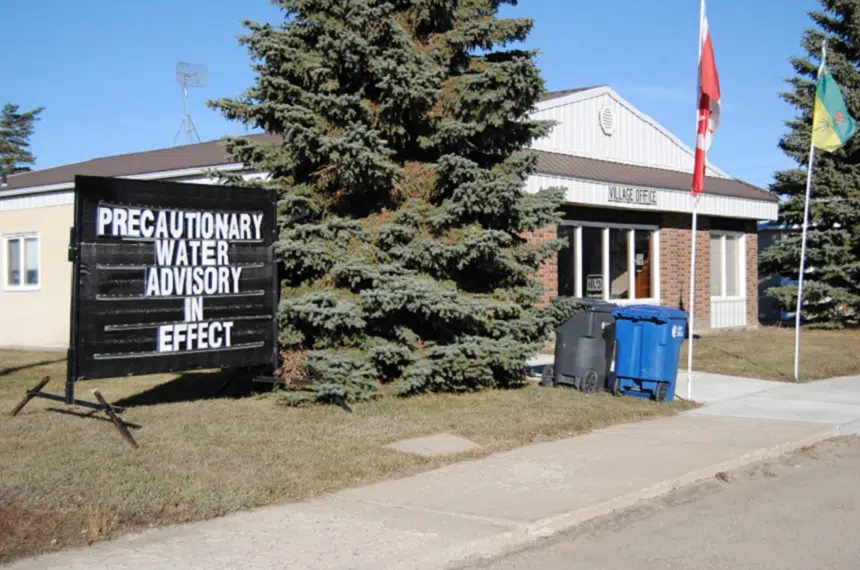As of the end of February, there were around 5,000 people in Saskatchewan who couldn’t drink the water right from their taps without concern.
Every time Sam and Catherine Fayant go to make dinner, they have to make sure the water they’re using is properly boiled. When it comes to drinking water, they go out and buy it.
They live about a half hour southwest of Melville, in Abernethy, which has been under a precautionary drinking water advisory since May 2015.
It’s one of nearly 20 towns, villages, and hamlets in the province which are under long-term precautionary drinking water advisories. The length of the advisories range from one year to close to two decades.
There are also eight First Nations communities under long-term water advisories and orders in Saskatchewan, though those communities are the responsibility of the federal government.
Sam gives the town credit, saying it’s doing what it can, but he’d like to have safe water.
“It would be nice to know that if you were to open your tap, that you know that you have water you can go safely to without having to put it on a stove,” Sam said.
Catherine is from Lemburg, about 15 kilometres away, and she said that town has clean, safe drinking water. She said it feels like, in Abernethy, they’re not a big priority for higher levels of government because help has been slow to come.
“Why should we be the ones that have to deal with not safe water?” Catherine asked.
Darlene Englot owns Grammy’s Place in Abernethy. She has to make sure to use bottled water from Balcarres for everything she makes in the restaurant.
“(Water is) something we need on a day-to-day basis to live. That’s not a luxury, you just, you need clean water,” said Englot.
A precautionary drinking water advisory (PDWA) means there’s not currently a danger with the water, but there is the possibility a danger could develop, so people are encouraged to boil their water.
During a boil water order, it’s confirmed there is a danger.
Most of these towns, villages and hamlets would be able to get off their advisories and orders with improvements to their water treatment systems, but without outside financial help, that’s far out of reach.
Dallas Baillie is the mayor of Abernethy. He explained the town has been trying to get funding to upgrade its water treatment plant since the advisory was put in place.
A test in 2015 found traces of cryptosporidium in the water — the same parasite which caused the 2001 sickness outbreak in North Battleford. All the tests since then have come back clean, but the town will have to make some big changes to its water treatment before the advisory is revoked.
Baillie said it’s expensive to have to buy bottled water for everything; he estimates over the past three years, drinking water has cost his residents three times what it normally would have.
The town has been trying to save money, but with a population of only about 200 residents, and most of those older people who are on a fixed budget, it’s hard to raise the $800,000 to $1 million Baillie said it would cost the town to make the necessary improvements.
Baillie said it’s been disappointing watching and waiting for the government to step up and help them out.
“It just doesn’t seem that they recognize us out here,” he said.
Late last year, Abernethy was one of the Saskatchewan communities chosen to receive help from the Canada Infrastructure Program. The village is putting in some money for a project and the federal and provincial governments are providing in the rest.
Baillie is excited about the prospect of getting rid of the advisory — he’s hoping that will happen in the summer — but he also said having to wait nearly four years for that help to come has been a hardship for the town’s residents.
Five of the 18 other communities under long-term water advisories have received some money from the Canada Infrastructure Program in previous years.
Roche Percee
It’s a similar story in other Saskatchewan communities like Roche Percee, which has been under an advisory since 2011.
Dwain Dzuba is the mayor of Roche Percee, and he’s also been trying to secure funding for his community.
The town was able to raise some money itself and put a new filter in the system in January, but it wasn’t enough to get off the advisory.
Dzuba said having to buy and boil water for years has been a frustration for people, but they continue because there isn’t much of a choice.
In Part Two of Murky Water, airing Tuesday, Lisa Schick examines the current longest-running advisory in the province, at 18 years.











